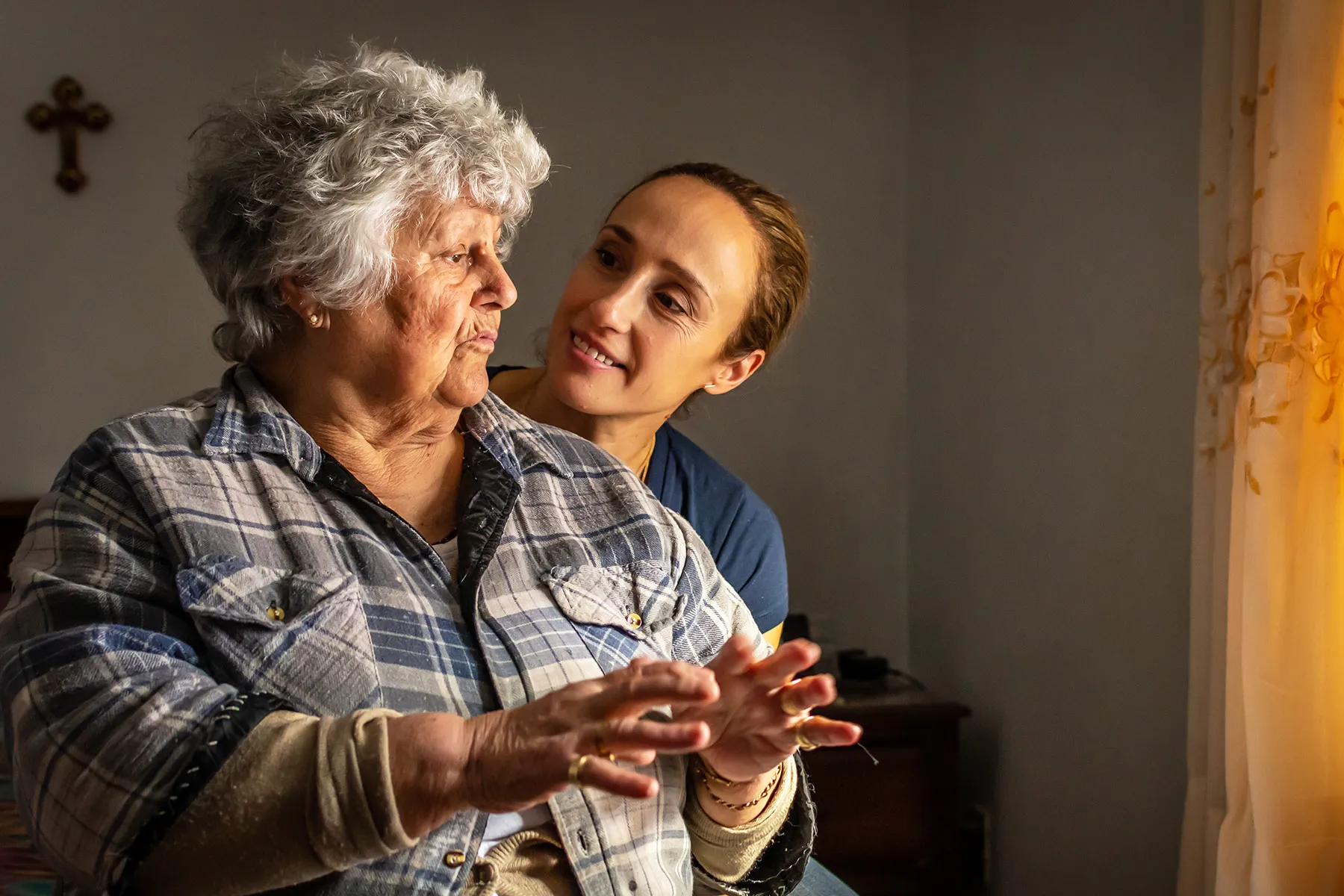Alzheimer’s disease poses challenges for both the person diagnosed with the disease and their loved ones. As the disease progresses, it becomes more difficult to recognize the person’s true self. It can feel as if the person you once knew is no longer there, even though they are physically present. So, how can you maintain your relationship with a loved one who has Alzheimer’s? The first step is to understand the effects of the disease on their mental and emotional responses. This will shift your expectations and allow you to adapt to a new way of relating to them.
It’s important to separate the disease from the person as early as possible, according to Virginia Wadley Bradley, PhD, a professor emeritus at the University of Alabama at Birmingham. Understanding how Alzheimer’s affects the brain and behavior allows you to provide empathy and support. Alzheimer’s disease can be divided into three stages: early, middle, and late. In the early stage, memory starts to decline. Your loved one may forget to take their medications, have difficulty remembering names, and misplace things. They may also struggle with managing finances, making them vulnerable to scams.
As the disease progresses into the middle and late stages, these symptoms worsen and the person’s responses to the world change. They may struggle to control their emotions, experiencing anger, sadness, or frustration. Eventually, they become unable to care for themselves independently. Naturally, these changes in behavior can be upsetting for both the person with Alzheimer’s and their loved ones. It’s important to recognize that there is a grieving process as you realize that your relationship will never be the same. The person you love is still present, but they have lost many abilities.
To establish a new relationship, it is crucial to accept and embrace the changes caused by Alzheimer’s. Relationship-centered care is an approach that focuses on who the person with Alzheimer’s was and meets them where they are. This approach involves tailoring care to their unique abilities and preferences, as well as involving the family in decision-making. It is essential to understand that each day may bring different challenges, so caregivers must be observant and adjust accordingly.
Here are five ideas for relationship-centered care to maintain strong relationships when a loved one has Alzheimer’s:
1. Recognize the familiar sparks: Even if your loved one cannot participate in life as they once did, they can still find joy in activities they used to love. Focus on the aspects of their personality that are still present and try to engage them in those activities. Familiar items and photos can also bring comfort and help redirect their attention if they become confused or agitated.
2. Roll with it: Symptoms of Alzheimer’s can change from day to day. It is important to establish a familiar routine but be ready to adapt if your loved one is having a bad day. Adapting to their responses and moods can help maintain emotional well-being for both of you.
3. Redefine expectations: It can be frustrating when your loved one can no longer perform simple tasks or forgets basic information. However, it is essential to set aside expectations and remain positive. Instead of correcting or reminding them of their forgetfulness, redirect their attention or change the subject. Keeping a positive attitude can help create a calm and positive environment.
4. Keep closeness: It is easy to feel isolated when dealing with Alzheimer’s, so encourage family members and friends to stay connected with your loved one in ways that are comfortable for them. For example, they can record video messages or create scrapbooks of memories to share with your loved one.
5. Take care of yourself: Caring for someone with Alzheimer’s is a long-term commitment. It is crucial to prioritize your own mental and physical well-being. Consider enrolling your loved one in adult day care, asking for help from other family members, or hiring a caregiver. Taking breaks and seeking support from support groups or online communities can also be beneficial.
Remember that Alzheimer’s disease will bring changes in your relationship, but by understanding the symptoms and using a relationship-centered approach, you can find new ways to stay close to your loved one and cherish every interaction.

